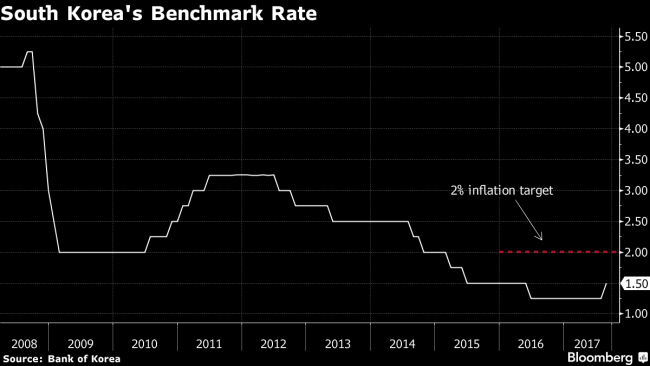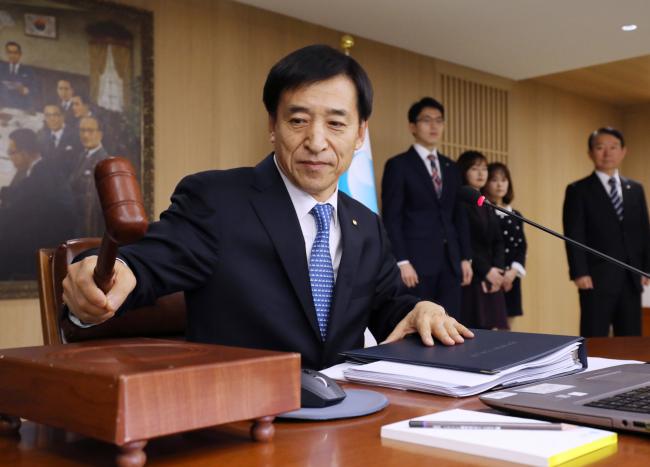(Bloomberg) -- The Bank of Korea raised its benchmark interest rate for the first time since 2011, marking a likely turning point for Asian central banks.
Thursday’s decision to raise the seven-day repurchase rate to 1.5 percent was forecast by 18 of 24 analysts surveyed by Bloomberg. The rest expected the central bank to leave the rate at a record-low 1.25 percent, where it has been since June 2016.
The move underscored the BOK’s confidence in the nation’s economic recovery and inflation. The economy is projected to grow more than 3 percent this year and inflation is near the central bank’s 2 percent target, creating room for the BOK to begin normalizing policy.
Asian central banks face rising pressure to raise interest rates after the Federal Reserve began tightening at the end of 2015. Before today, there hadn’t been a hike of a benchmark rate by a major central bank in Asia since 2014. With another rate increase by the Federal Reserve seen coming in December, the BOK would also want to avoid having higher U.S. rates triggering capital outflows from Korea.
South Korea’s economic recovery has been driven by exports, especially of semiconductors, while domestic consumption remains modest. Faced with a record level of household debt, the central bank is wary of increasing the repayment burden with higher rates.
After the BOK raised rates as expected, the won weakened 0.6 percent against the dollar to 1,083.65 on Thursday as of 11:17 a.m. in Seoul. The yield on three-year government bonds fell two basis points to 2.1 percent.
Economists expect the rate-hike cycle to be shorter and more gradual than previous ones, ending at about 2 percent, according to a survey by Bloomberg found.
The central bank said in a statement Thursday that it would maintain its accommodative policy stance, aiming at ensuring that inflation stabilizes at its 2 percent target over the medium term. Inflation expected to be in the mid-1% range for some time, it said.
BOK Governor Lee Ju-yeol has previously said a rate hike wouldn’t constitute tightening, stressing the need to reduce policy accommodation. The International Monetary Fund said earlier in November that the BOK’s policy would remain accommodative even after two rate increases.
Expectations of a rate hike had been high since the BOK’s meeting in October, when one dissenter called for an increase.
(Adds details from BOK statements.)

